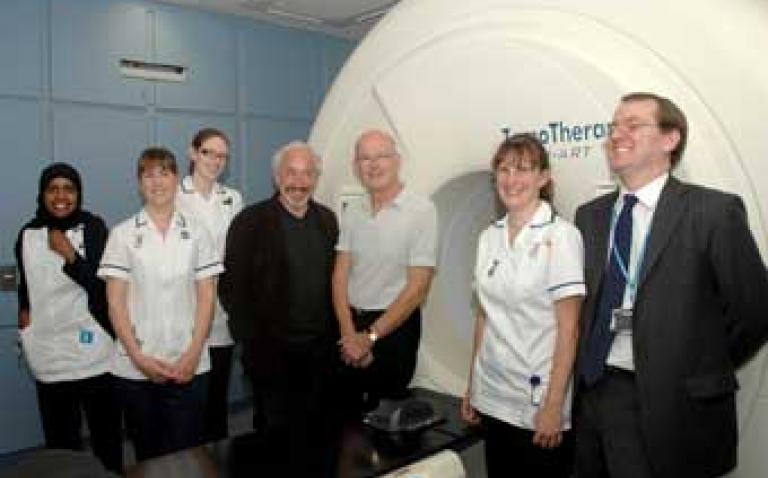Actor, writer and theatre director Simon Callow visited Addenbrooke’s on Friday 25 June to unveil the newest addition to the hospital’s Oncology Centre: a second TomoTherapy machine, which combines internal imaging and radiotherapy in one device and allows clinicians to treat cancer right down to the last millimetre.
Addenbrooke’s became the first NHS hospital to offer the treatment in 2007 – and the new equipment makes it the first in the UK to have two TomoTherapy machines installed.
Dr David Gilligan, consultant oncologist, said: “This is a very clever system. It lets us see the location of the patient’s tumour at every visit so we can target their treatment.
“A man with prostate cancer is a good example. The prostate can change position from one day to the next, but the TomoTherapy machine carries out a CT scan before treatment to make sure both the patient and the radiotherapy beam are in exactly the right place. That means we can treat the cancer as accurately as possible, which may reduce side effects.”
As well as scanning inside the body, the machine rotates around the patient, delivering radiation from many different angles. That allows high doses to reach the tumour whilst avoiding damage to nearby critical organs like the spinal cord – an essential consideration when treating head and neck cancers.
Simon Callow said: “A cancer diagnosis is always a shocking thing. I have had many close friends who have been diagnosed – and the first thing they need to know is that they are in the safest possible hands and are getting the best possible treatment. Addenbrooke’s magnificent machines provide exactly that, which is the best encouragement any patient could ask for. It’s a wonderful achievement.”
The Addenbrooke’s machines – which cost over £2 million each – are used mainly for head, neck and prostate cancer patients. They are most suitable for tumours which can change position, or which are close to parts of the body that are easily damaged by radiation.










